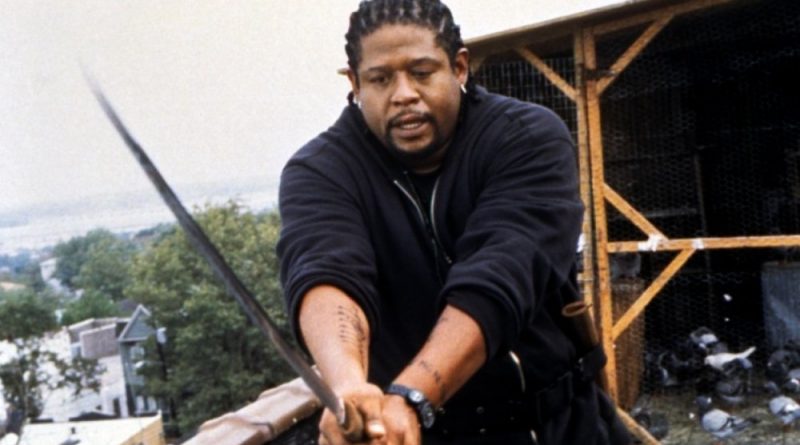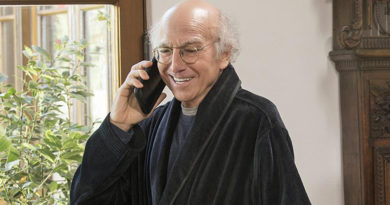“Ghost Dog: The Way of the Samurai” Review
Toward the end of Jim Jarmusch’s 1999 masterpiece Ghost Dog: The Way of the Samurai, this quote from the Hagakure is read aloud:
“It is said that what is called ‘the spirit of an age’ is something to which one cannot return. That this spirit gradually dissipates is due to the world’s coming to an end. For this reason, although one would like to change today’s world back to the spirit of one hundred years or more ago, it cannot be done. Thus it is important to make the best out of every generation.”
This is one of many passages quoted throughout the movie from the old samurai text, which is used as a framing device for the film’s events and ideas, but it is also the one which I found most poignant both within the film and for it’s implications on the outside world.
Ghost Dog stars Forrest Whittaker as the titular assassin, a mysterious man who’s life is saved by Louie, an Italian mafioso. To pay Louie back, Ghost Dog serves as his retainer, his own samurai, carrying out assassinations at his behest and dedicating his life to the art of violence. When an assassination goes awry, Ghost Dog must wage war against the mafia that Louie is a part of all while maintaining his loyalty to the man who saved his life.
The movie features Jarmusch’s trademark deadpan humor, often mocking the bumbling ineptitude of the aging mafia members as well as the more problematic elements of the samurai code of honor. It is also heavily influenced by films like Le Samourai and Branded to Kill, frequently paying overt homage while maintaining Jarmusch’s signature easygoing pacing and featuring his stark-yet-dreamlike cinematic style.
While the film does mine the samurai code for humor, there is also sympathy and empathy as well. Much is made, by both Ghost Dog and some members of the mafia, of the “ancient ways”, the way of warriors where honor, duty, and bravery were prized above all else, and how the world has moved away from these things. The mafia in the film is greedy, petty, racist, and incompetent. It’s members lack self-control and are constantly betraying each other. This is contrasted with Ghost Dog, who kills all his enemies without hesitation yet would allow Louie to kill him at a moments notice if he so wanted. Ghost Dog also maintains a strong sense of duty toward the pigeons he keeps as pets as well as the larger black community he lives in. He always lends a hand to his friends, including a Haitian ice cream salesman played by a scene-stealing Isaach de Bankole, and passers by pay their respects to him. It is through these elements that the film poses its central questions.
Over the last few years, it is easy to see from the actions of politicians, CEOs, the media, and even ordinary people, that we are living in the age of gangsters. The “spirit of our age” is one of unbridled selfishness, egotism, narcissism, and exploitation. The American people are encouraged to indulge their worst impulses from all corners of culture, from advertising, from politics, from business, and even religion. It makes sense that many Americans wish to turn back the clock and recapture some nebulous earlier moment in history that is now lost forever.
That is ultimately the question the film asks: How do we make the best of our current generation? Ghost Dog is an alien in the modern world. He is utterly without ego, and all selfish impulses are subsumed into his ethic of service. The film, even with its critical glance at the Hagakure, asks if there is perhaps something we can learn from the way of the Samurai. Is it all ancient, self-destructive bullshit? Or are there aspects we can take away from it to make the best of our present moment? The film walks the line of hip irony and sincerity in its portrayal of Ghost Dog, encouraging us to laugh at but also understand and admire his extremist devotion to an outmoded way of life and to think about what qualities he has that may be missing from our contemporary world.
All this aside, Ghost Dog is a damn good movie. Its visuals are gritty, stark, humorous, and beautiful in their own way. It plays around with mood and editing in a meditative yet exciting way. There are great performances all around as well as an excellent score from RZA, who pulls from as many musical influences as Jarmusch has cinematic influences. Not to mention it is a fun, exciting, and pretty badass crime movie in its own right.
Criterion just issued their own edition of the movie, which is well worth picking up, but Ghost Dog demands to be seen in any format you can get it in.




